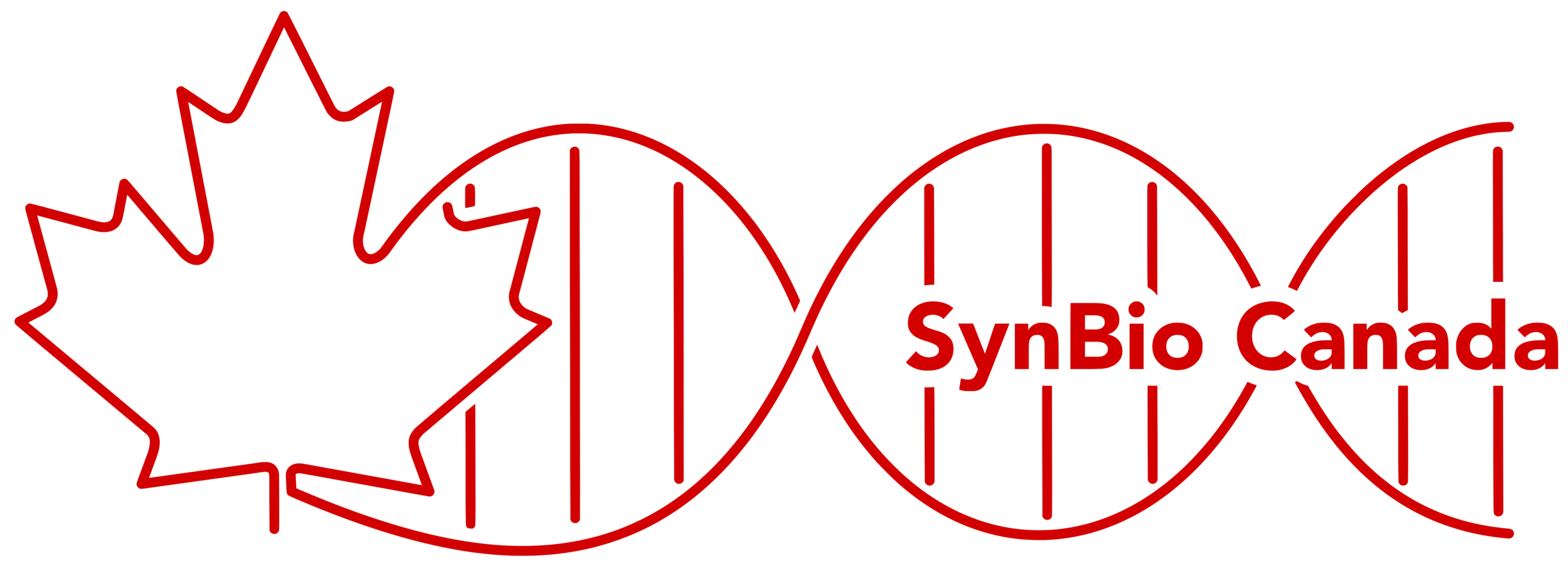Quick Chat with Julie Legault
By Emma Lindsay - SEPTEMBER 30th, 2024
Julie Legault is the founder of Amino Labs. She earned her Bachelor of Fine Arts in Design and Computation Art, and her Graduate Certificate in Digital Technologies in Design Art Practice at Concordia University. Julie went on to earn her Master of Art at the Royal College of Art and a Master of Science at the Massachusetts Institute of Technology (MIT) Media Lab. Her interest in learning synthetic biology and genetic engineering inspired her to found Amino Labs, whose goal is to make biotechnology and synthetic biology more accessible to the next generation.
What inspired you to shift your focus from design to biotechnology and SynBio?
I first got involved in synthetic biology in 2014 while studying at MIT. I attended a workshop on synthetic biology out of curiosity, not knowing much about it, and being enticed by the free breakfast. During the workshop, we built a DNA plasmid that produces violacein, a compound used in research that is this beautiful purple colour, and put it in bacteria. This was my first experience working with a pipette, and it was exciting to see the process. Also, the workshop took place in a kitchen rather than a typical lab setting.
As I began to understand synthetic biology better, it provided me with context for concepts like GMOs and CRISPR, which are often discussed in the news but not explained. I was really excited and wanted to keep experimenting with the bacteria and the colours. I got some lab space at MIT to continue experimenting. I was not trained to work in labs, and I found it difficult to understand what I was supposed to do. I kept calling the scientist over for help with where to find supplies and how to do different things. I realized this one experiment in the kitchen had changed my attitude and understanding of science.
I decided to create a mini-lab for myself. With my background in product design, I was familiar with 3D printers and laser cutters, so I set up a small lab with essential equipment like a centrifuge and an incubator. This led to the start of Amino Labs, which is our company.
At Amino Labs, we focus on helping science teachers and learners at home conduct their first experiments in synthetic biology. We provide tools and pre-measured kits so that users don’t need access to a full lab. This approach is beneficial for beginners and teachers who may lack the time, resources, or expertise to set up and execute experiments on their own.
How did the opportunity to collaborate with Dr. Justin Pahara arise?
Dr. Pahara was the one who led the workshop I attended at MIT. He came with his first company, Synbiota, and did the biohackathon. He was the scientist I frequently reached out to for help. He agreed to advise on my thesis, which involved the lab I had built. After graduating, MIT offered some funding to continue developing the lab and explore its potential as a company. I brought Dr. Pahara on as an advisor, and when his company, Synbiota, eventually wound down, it was a smooth transition to bring him on as a co-founder.
It was a combination of luck of circumstances and necessity. You can't have a science company without a scientist, and Dr. Pahara was very supportive. Unlike some scientists who believe you need formal training to do science, he was enthusiastic about DIY biology and encouraged my efforts. His openness and belief in the company’s mission made him a great match.
What were the biggest challenges you faced in turning your idea into a functional tool for beginners?
During the development of my prototype, one of the biggest challenges was overcoming skepticism from scientists. People doubted whether a tiny incubator should be used by children. We specifically target users above the age of 12, since younger kids may lack the dexterity required and might ingest things they shouldn’t.
Another significant barrier was the cost of educational materials. In Canada, we’re a bit luckier because schools generally have better budgets compared to the US or other countries, but some teachers still have to pay out of pocket for experiments. We needed to address this issue by making our experiments as cost-effective as possible. We developed methods to conduct experiments without expensive equipment like incubators or pipettes. By removing these costs, we allowed students to perform basic experiments, such as streaking a Petri dish, even on a tight budget. This approach helps schools get started with hands-on science and provides a foundation for further investment in the future.
Are there any upcoming products or initiatives at Amino Labs that you’re particularly excited about?
We’re currently celebrating our 9th anniversary this week, which is really exciting! One of our latest projects is an animation that celebrates the journey of a student learning science. We're working on promoting it and getting it out there.
In the longer term, we’re looking to expand our experiments to include biomanufacturing. Most of our current experiments are based on bacteria, but we’ve already developed a couple related to biomanufacturing and plan to push more into this area. We have a book that goes along with our bacterial experiments, and we’re hoping to also create a similar book for biomanufacturing.
For anyone interested in getting their teachers or schools involved, there are opportunities to do so. In Alberta, for example, we collaborate with a nonprofit organization that provides some of our resources to classrooms at no cost, helping to relieve the financial burden on schools. Additionally, we offer a range of free resources that can be utilized. Schools in the US are taking up synthetic biology more rapidly than schools in Canada. It would be great if fellow scientists could get their local schools involved.
What specific skills or concepts do you hope students take away from using the experiment kits?
I want to show kids that science is not scary, and it’s not exclusive for certain people. Anyone can engage with science, whether it's pursuing a career in it or simply understanding it. This knowledge is valuable when making informed decisions about things like vaccines, genetic testing, or emerging gene therapies. It’s important for people to understand these topics and not take everything at face value. In today's world, where there’s increasing mistrust in science, it's important to help students and children understand that science is not evil.
What advice do you have for someone who is interested in starting their own company or dipping into a new field?
If you’re entering a new field, find people who are receptive to your plans and ideas. Try to collaborate with them, or at least have discussions with them. It can be challenging to navigate on your own without any support or contacts, so making connections within the community, whether online or in person, is very beneficial.
If you’re starting a company, the advice is the same. Having a strong support network is essential. Surround yourself with people who will support you through the ups and downs, whether they are co-founders, teammates, or friends. There will be challenging moments, and having supportive people around can make a significant difference. It doesn’t require a massive network or high-profile connections. Even having a few supportive individuals who can provide advice or point you in the right direction can be incredibly helpful.
Julie Legault’s transition from design to synthetic biology has introduced an affordable, hands-on opportunity for students and beginners to explore synthetic biology. With Amino Labs, Julie has created tools to make science more accessible to the public.

